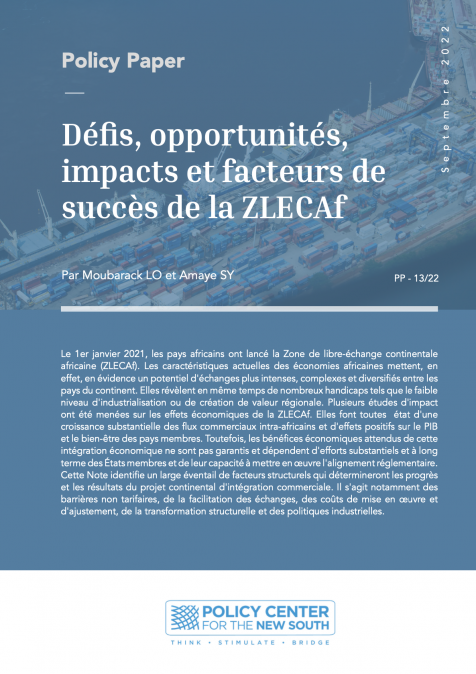Publications /
Opinion
The trade war between China and the United States roils stock markets, and the World Trade Organization is at risk of extinction because major players ignore its rules. But the fierce controversy surrounding the Global Compact on Migration, a mild and non-binding document which several of the countries gathered in Marrakesh – including about one-third of EU members - refused to sign, shows that migration is even more radioactive than trade. As they face a backlash against globalization, policy-makers are under far greater pressure to contain migration than to stop imports.
So, it is natural for the rich countries to ask: can we reduce immigration from poor nations by allowing them to export more to us? To answer that question, economists have traditionally turned to the standard trade model, which predicts that if, for example, Mexico is allowed to export more to the United States, then the gap in wages between Mexico and the United States will narrow, and so will the incentive of Mexicans to move North. This argument was used by the proponents of NAFTA in the early 1990s and is often used today to justify trade agreements.
It turns out that the world is too complicated for the standard model to capture. Studies show that few very poor people migrate. This is either because they cannot afford the trip, or cannot take the risk, or don’t have enough contacts. People tend to migrate only when incomes rises above a certain level that allows them to build some modicum of reserves. This line of thinking is called the “Migration Hump Hypothesis”. It implies that insofar as trade boosts wages in poor countries, it will cause increased– not less – migration. There are many good reasons to help the poorest countries, but reducing migration is not one of them.
However, most people prefer to stay at home if they can, so that once they reach a certain income level – studies suggest that level is around $10,000 per capita adjusted for purchasing power, roughly where Morocco, Tunisia, Egypt are today – the propensity to migrate tends to decline. In those instances, increased trade, rising wages and economic growth may indeed have the effect of reducing migration, as the standard model predicts, although studies suggest that the effect is likely to be very small.
It turns out that, by far, the most important effects are not those of trade on migration, but those of migration on trade. Many studies have shown that, other things equal, countries that are linked by large flows of migrants tend to trade much more with each other. The main reason that migration increases trade is that immigrants know their country of origin and of destination well and can identify both import and export opportunities more easily than natives can. A secondary factor is that immigrants tend to prefer to consume goods and services from their country of origin, with which they are familiar.
A large community of people overseas – a diaspora - can transform a country. For example, large parts of Morocco’s foreign exchange earnings can be linked to its diaspora: remittances represent about 7% of GDP; a large part of inbound tourism, which accounts for about 8% of GDP, is by Moroccan expatriates; and a part of inward FDI, which accounts for 3% of GDP. Because of its diaspora, Morocco’s exports of goods and services may be 15% higher than they would otherwise be. This foreign exchange allows Morocco to import more, and the diaspora also helps supply those imports from countries where it resides. Morocco trades far more proportionally with France, Spain and Italy, where there is a large Moroccan diaspora, than with other countries which are just as close.
Studies also show that the positive effect of migration on trade is not linear. This means, for example, that an additional 100,000 Moroccans in France – where the Moroccan diaspora is already very large, will promote only a little more trade between Morocco and France. But an additional 100,000 Moroccans in the United States or Australia, where the Moroccan diaspora is relatively small, could do quite a bit for trade between Morocco and those countries.
So, what lessons should countries derive for their policies? First, that increased trade liberalization may have little or no effect on migration and it may even increase immigration from the poorest countries. Second, if they believe – in line with the views of most economists - that trade enhances a country’s welfare, then they should welcome both international immigration and emigration. Ideally, to have the maximum impact on international trade, these two-way flows of migrants should not be concentrated in any one direction but involve as diverse a set of countries as possible. This may be one reason that some of the world’s most successful cities - London, Los Angeles, New York, Paris and Singapore - are also a source and destination of many people who temporarily or permanently move overseas.









